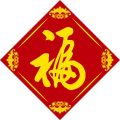1. Introduction: Merging Feng Shui with Modern American Wallet Habits
Feng Shui, the ancient Chinese art of arranging objects to promote harmony and positive energy, has found its way into many aspects of modern life. In todays fast-paced American culture, our wallets have become more than just a place to keep cash—they carry credit cards, receipts, IDs, gift cards, and even loyalty program punch cards. But did you know that the way you organize your wallet can actually influence your mindset, financial habits, and even your sense of well-being? This section explores how traditional Feng Shui principles can be thoughtfully adapted to fit contemporary American lifestyles, especially when it comes to wallet organization.
Why Focus on Wallets?
Your wallet is a daily companion that directly relates to your finances and self-image. In Feng Shui, wallets symbolize wealth and prosperity. Cluttered wallets may block the flow of money or signal chaos in ones financial life. On the other hand, an organized wallet encourages positive financial habits and attracts abundance.
Key Differences: Traditional vs. Modern Wallet Contents
| Traditional Wallet (Feng Shui) | Modern US Wallet |
|---|---|
| Cash notes neatly arranged ID card Lucky charm or red envelope |
Credit/debit cards Receipts Loyalty/gift cards ID/Driver’s license Photos or keepsakes |
The Symbolism of Wallet Contents
Each item in your wallet holds symbolic meaning in Feng Shui:
| Item | Symbolic Meaning (Feng Shui Perspective) | Modern Relevance (US Context) |
|---|---|---|
| Credit Cards | Potential for wealth or debt; flow of financial energy | Essential for daily transactions; can represent financial freedom or stress |
| Receipts | Past transactions; holding onto them can symbolize clinging to the past or cluttering wealth energy | Proof of purchase; often accumulate quickly and add bulk |
| ID/Driver’s License | Your identity; represents stability and recognition in society | Needed for identification; crucial for daily life activities |
| Loyalty/Gift Cards | Presents future opportunities for savings or gifts received from others | Used frequently for discounts or special offers in stores and restaurants |
| Keepsakes/Photos | Ties to family/loved ones; emotional support and connection | A personal touch; helps personalize your wallet experience |
The Goal: Harmony Between Tradition and Modernity
The aim is not to give up convenience or technology but to use Feng Shui wisdom as a guide for mindful organization. By understanding the symbolism behind each item we carry and arranging our wallets with intention, we can create a balanced space that supports both our financial health and our everyday lives. In the following sections, we will dive deeper into specific strategies for organizing credit cards, managing receipts, and creating a wallet that truly reflects both prosperity and practicality in the modern American context.
2. The Energy of Credit Cards: Abundance or Blockage?
The Symbolism of Credit Cards in Your Wallet
In contemporary Feng Shui, your wallet is seen as a symbol of your financial health and relationship with abundance. In the United States, its common to carry several credit cards at once—sometimes for rewards, convenience, or emergencies. However, from an energetic perspective, each card represents a flow of energy that can either support or hinder your prosperity.
Energetic Impact: How Many Cards Are Too Many?
Carrying multiple credit cards can have both positive and negative impacts on your financial energy. On one hand, having access to credit might feel empowering and secure, suggesting abundance and readiness for opportunity. On the other hand, an overloaded wallet stuffed with cards could symbolize scattered energy, confusion, or even debt-related stress.
| Number of Credit Cards | Potential Energy Flow | Feng Shui Interpretation |
|---|---|---|
| 1-2 Cards | Focused, controlled, clear intention | Supports healthy spending habits and clarity |
| 3-4 Cards | Balanced but requires awareness | Offers flexibility but needs mindful management |
| 5+ Cards | Scattered energy, potential overwhelm | May invite chaos or financial blockages if unmanaged |
The Debt Connection: Invisible Energy Weighing Down Your Wallet
Each credit card you carry also carries its own story—maybe its tied to past purchases, outstanding balances, or even feelings of guilt about overspending. In Feng Shui terms, these unseen burdens can create “blockages” in your personal money flow. If your wallet feels heavy or cluttered with cards you don’t use or debts you worry about, it might be time to reconsider what you carry daily.
Tips for Harmonizing Your Wallets Energy with Credit Cards:
- Select Intentionally: Only keep cards you use regularly and pay off responsibly.
- Avoid Clutter: Remove expired or rarely-used cards from your wallet.
- Cultivate Awareness: Check your feelings when reaching for a card—does it bring stress or confidence?
- Create Space: A slim wallet with fewer cards allows fresh financial energy to enter.
This mindful approach not only aligns with Feng Shui principles but also helps foster healthier spending habits and a more positive relationship with money in everyday American life.
![]()
3. Receipts and Clutter: The Hidden Consequences
In the fast-paced lifestyle of the United States, it’s easy to let receipts pile up inside our wallets after every shopping trip or coffee run. While these slips of paper may seem harmless, their accumulation can have a surprising impact on both our physical space and financial mindset. Let’s take a closer look at how holding onto receipts contributes to clutter and affects your wealth flow according to contemporary Feng Shui principles.
How Receipt Clutter Builds Up
Every time you make a purchase—whether it’s gas, groceries, or a quick meal—you’re handed a receipt. Most Americans tuck these away in their wallets with the intention of “sorting them later.” Over time, this habit turns your wallet into a storage unit for old transactions, making it bulky and disorganized. This physical clutter reflects mental clutter, subtly signaling that your finances are scattered or unmanaged.
The Feng Shui Perspective on Wallet Clutter
Feng Shui views your wallet as a symbol of your relationship with money. When it’s overflowing with unnecessary items like outdated receipts, it blocks positive energy (Qi) from circulating freely. In practical terms, this can translate to feeling overwhelmed by expenses, losing track of spending habits, or missing out on financial opportunities because you can’t find important cards or cash quickly.
Comparison: Organized vs. Cluttered Wallets
| Aspect | Organized Wallet | Cluttered Wallet (with Receipts) |
|---|---|---|
| Physical Appearance | Slim, tidy, easy to use | Bulky, messy, hard to close |
| Mental State | Clear-minded, confident | Anxious, distracted |
| Financial Flow | Smooth tracking and spending | Easily lose track of purchases and budget |
The Emotional and Financial Impact
The presence of excess receipts isn’t just about aesthetics—it can trigger stress each time you open your wallet. Psychologically, it reinforces procrastination (“I’ll deal with my finances later”) and disrupts financial clarity. When you’re unsure what’s in your wallet or how much you’ve spent recently, making smart money decisions becomes harder.
Cultural Note: American Habits and Solutions
In the US, many people keep receipts for returns or budgeting but rarely sort them regularly. Adopting a weekly habit of reviewing and discarding unneeded receipts supports both Feng Shui principles and practical organization. By keeping only essential records—like those needed for warranties or taxes—you maintain an inviting space for new wealth and opportunities.
4. Optimizing Wallet Layout: Tips for Positive Qi
Organization Strategies for American Wallets
Keeping your wallet organized isn’t just about convenience—it’s also a key Feng Shui principle that can help attract abundance and clarity into your daily life. In the US, wallets often hold credit cards, receipts, IDs, and sometimes cash. Cluttered wallets can block the flow of positive energy, or Qi, leading to stress and financial stagnation. Here are simple steps to organize your wallet effectively:
- Declutter Regularly: Remove old receipts, expired cards, and unnecessary items at least once a week.
- Designate Sections: Assign specific slots for credit cards, cash, IDs, and loyalty cards to keep everything in order.
- Limit Credit Cards: Carry only the essential credit cards to reduce energetic overwhelm and encourage mindful spending.
- Separate Receipts: Use a dedicated compartment or small envelope for receipts you need to keep temporarily; avoid mixing them with cash or cards.
Choosing Feng Shui-Friendly Wallet Colors
The color of your wallet plays a role in attracting certain types of energy. In American culture, style matters—but so does symbolism in Feng Shui. Here is a guide to choosing wallet colors that align with your goals:
| Color | Feng Shui Meaning | Best For |
|---|---|---|
| Black | Wealth & Success | Those seeking career advancement and financial growth |
| Red | Energy & Prosperity | If you want to invite new opportunities and motivation |
| Green | Growth & Renewal | If youre aiming for fresh starts or personal development |
| Brown/Tan | Stability & Grounding | If you value security and long-term stability |
| Blue | Calmness & Wisdom | If peace of mind and clear thinking are priorities |
Selecting Materials for Good Energy Flow
The material of your wallet affects how energy moves through it. According to Feng Shui principles tailored for American lifestyles, here are some popular choices:
- Leather (Genuine or Vegan): Symbolizes strength and reliability; ideal for those wanting durable support for their finances.
- Cotton or Fabric: Brings lightness and flexibility but may need frequent cleaning to prevent stagnant energy from building up.
- Synthetic Materials: Convenient but not as favorable in traditional Feng Shui; choose high-quality versions if you prefer practicality.
Quick Reference Table: Wallet Optimization Tips
| Aspect | Feng Shui Tip |
|---|---|
| Organization | Tidy weekly; assign slots; limit card count; separate receipts. |
| Color Choice | Select based on desired outcome—wealth (black), prosperity (red), etc. |
| Material Preference | Opt for leather or quality fabric to support positive Qi flow. |
A Practical Approach for Americans Seeking Abundance & Peace of Mind
You don’t need a traditional Chinese wallet to benefit from Feng Shui—just a mindful approach! By organizing your wallet, selecting intentional colors, and choosing materials thoughtfully, you can turn your everyday accessory into a magnet for good fortune and peace right here in the US.
5. Developing Mindful Money Habits: Everyday Practices
Adopting a mindful approach to money isn’t just about having an organized wallet; it’s about creating everyday habits that encourage financial clarity, abundance, and well-being. By blending traditional Feng Shui principles with modern financial wellness strategies tailored for life in the U.S., you can transform your relationship with money in simple, practical ways.
Practice Daily Financial Awareness
Start by taking a moment each day to check your wallet and digital accounts. In Feng Shui, attention and intention are key to welcoming positive energy (chi). In the American context, this means being aware of what you spend, where your money goes, and how you feel about those transactions. Small daily check-ins help prevent overspending and encourage gratitude for what you have.
Suggested Daily Money Check-In Routine
| Time of Day | Action |
|---|---|
| Morning | Review wallet contents; remove unnecessary receipts or expired cards |
| Lunchtime | Briefly track spending on mobile banking apps or budgeting tools |
| Evening | Reflect on purchases made and set intentions for tomorrow |
Create Positive Money Affirmations
Words have power. Try starting your day with positive affirmations about wealth and abundance. For example: “I am responsible with my finances,” or “My wallet attracts prosperity.” This echoes Feng Shui’s focus on intention and aligns with popular American self-help practices.
Make Smart Use of Credit Cards and Receipts
In the U.S., credit cards are convenient but can lead to clutter and debt if not handled mindfully. Limit the number of cards you carry, keep them organized, and regularly review statements to ensure healthy spending patterns. Store receipts only for necessary returns or expense tracking—discard the rest promptly to maintain both physical and mental clarity.
Credit Card Management Tips
| Tip | Description |
|---|---|
| Carry Only Essentials | Limit your wallet to 1-2 primary cards to reduce bulk and decision fatigue |
| Set Spending Alerts | Use mobile app notifications to stay within budget and spot unusual activity quickly |
| Monthly Review Habit | Schedule a monthly “money date” to go over all credit card statements together with your partner or solo |
Cultivate Generosity and Gratitude
A core principle in Feng Shui is the flow of energy—what you give comes back to you. In everyday American life, this could mean tipping generously when service is good, donating small amounts to local causes, or simply expressing thanks when paying for goods or services. These actions support a sense of abundance and community.
Key Takeaways for Mindful Money Habits in the U.S.
- Treat your wallet as a reflection of your financial mindset—keep it tidy and intentional.
- Blend daily rituals with modern tools like budgeting apps for better awareness.
- Set up regular routines for reviewing spending, discarding clutter, and expressing gratitude.
- Remember that mindful money habits support both financial health and overall well-being.
This balanced approach draws from both ancient wisdom and today’s best financial practices, helping you create a harmonious relationship with money every day.


